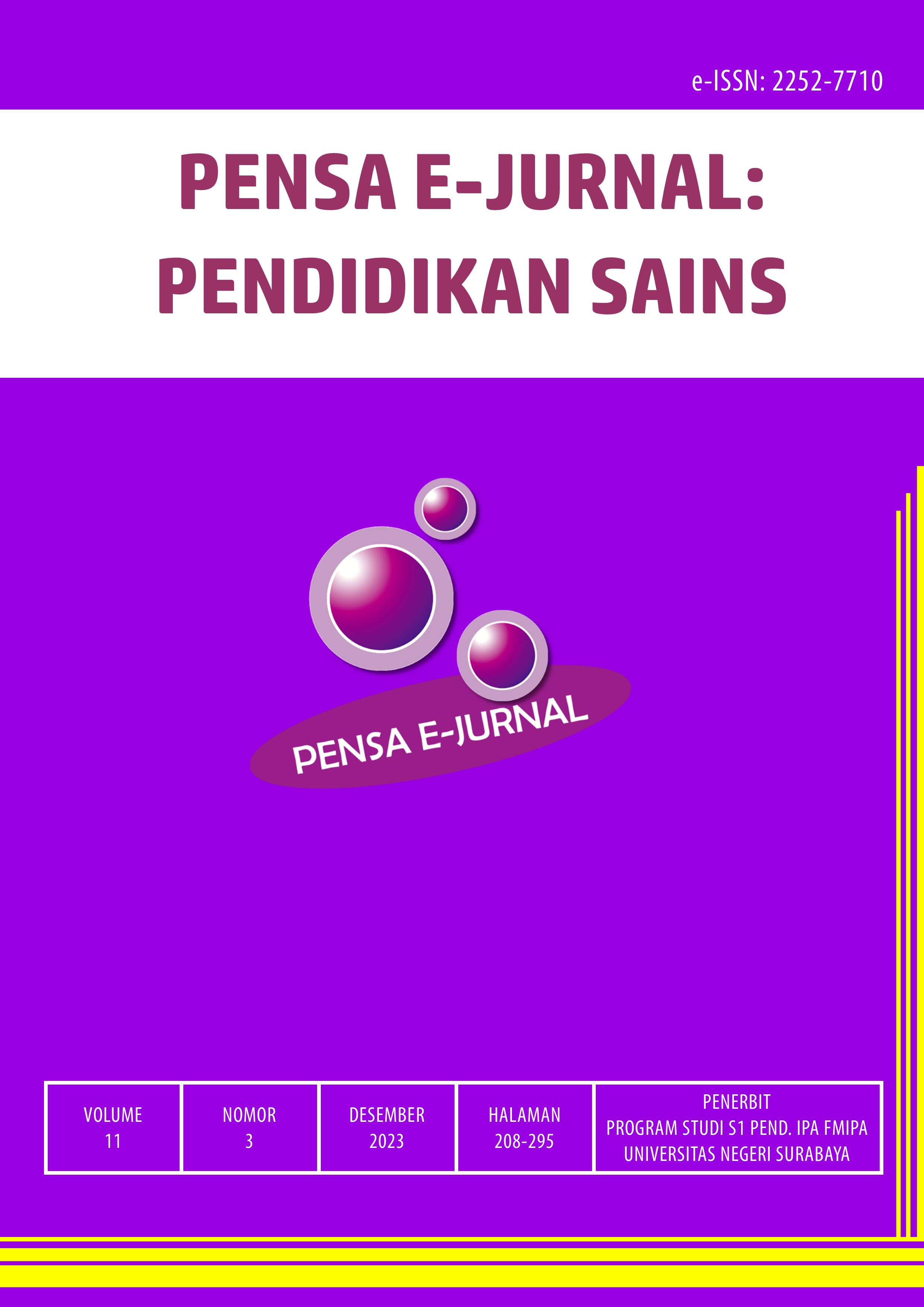PENINGKATAN HASIL BELAJAR SISWA MENGGUNAKAN MODEL PEMBELAJARAN PROBLEM BASED LEARNING DI KELAS VIII SMP
DOI:
https://doi.org/10.26740/pensa.v11i3.53981Keywords:
learning model, problem based learning, student learning outcomesAbstract
The present research aims to determine student learning outcomes after applying the problem based learning model to material on the human respiratory system. This research followed 32 class VIII students at one of the state junior high schools in Gresik for the 2022/2023 academic year. The design used is one group pretest-posttest design. The analysis technique is analysis of learning outcomes using N-Gain. This research can be concluded, namely that science learning in the human respiratory system material through the application of problem based learning techniques achieves complete learning outcomes in knowledge competency with an average score of 85.6. The increase can be seen in the normalized gain pretest and posttest scores of 0.73 in the high category. Based on the analysis of the normalized gain results and the information presented, it can be concluded that the application of the problem based learning model improves junior high school students' learning outcomes in science subjects on the human respiratory system.
Downloads
Downloads
Published
How to Cite
Issue
Section
 Abstract views: 163
,
Abstract views: 163
, PDF Downloads: 205
PDF Downloads: 205

















